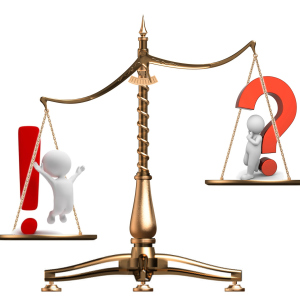Imagination is the ability of human psyche to create images, paintings and ideas in consciousness. If perceptions form images of objects and phenomena, directly visible in the material world, then the imagination simulates images of non-existent objects based on the available visual images and representations. Such images may differ significantly from the real picture of reality or contain any other information.
Why do you need imagination?
- Without the ability of imagination, such processes as modeling, planning, creative and gaming activity could not flow. Imagination is a source of scientific discoveries, technological progress, art development, life management.
- The imagination creates images of objects and phenomena, based on not in its own memory, but in the overall picture of the world. Such images are less real and are based more on fantasies. Developed creative imagination gives people a bright personality and uniqueness.
- The ability of imagination is even at the most pragmatic and skeptical people. In this case, the imagination performs the function of planning and programming the future.
- Imagination can affect the human body as the process of activity of the nervous system. A person under the influence of imagination can feel sick or vigorous and full forces.
Types of imagination
- Involuntary (passive) imagination It works in a state of uncontrolled consciousness. For example, in a dream, paintings and images, sometimes not any logic, replace each other, can be frightening or surprisingly beautiful.
Passive imagination may be present not only in a dream - for example, spontaneous formation of some images, when a person does not directly direct his thinking. - Arbitrary (active) imagination - This is the intentional construction and detailing of invented images. In childhood, active imagination is developing rapidly in a game form when the child is trying to imagine a particular role - a doctor, teacher, etc. From the point of view of education, it is necessary to pay enough time to develop the ability of imagination in children, thereby forming further perception of life and behavior in These or other situations.
The most vividly active imagination is manifested in different types of creativity, when a person must present and recreate the image of the subject, which before that did not exist in reality.
- In everyday life, active imagination is the basis of self-development, it is in mind those or other pictures and tries to improve images, give them a perfect view. For example, the picture of the attractive future - each person has this image formed on the basis of reality and its own aspirations. Active and purposeful man, having a dream, seeks her performance. For others, future achievements remain only fantasies and lead to disappointment in life.
- Resting imagination - The ability to present what already exists or existed both exactly how it existed.
The recreation imagination helps to move into another time or another country, make a journey without leaving home. As a rule, this type of imagination begins to work when reading a certain literature, when a person is trying to present the described in the book, imagging and adding details.
Functions of imagination
From the point of view of the mental process, the imagination performs certain functions, forming a psycho-emotional state and human behavior.
- Knowledge - It consists in expanding the horizon based on the knowledge gained on the surrounding reality and the formation of the correct reaction and behavior in an unfamiliar situation.
- Forecasting - It implies that the imagination helps a person to see the final result of an unfinished action or situation. This can also take the ability of a person to dream, i.e. Represent the most favorable outcome.
- Understanding - It is possible to understand the state, emotions and the inner world of another person based on assumptions.
- Protection - It is an objective assessment of possible danger and preventing it by predicting the situation.
- Self-development - Ability to creativity and creation.
All listed functions of imagination are developed in people in different extent. The predominance of one of the functions above the other determines the nature and model of human behavior.



















